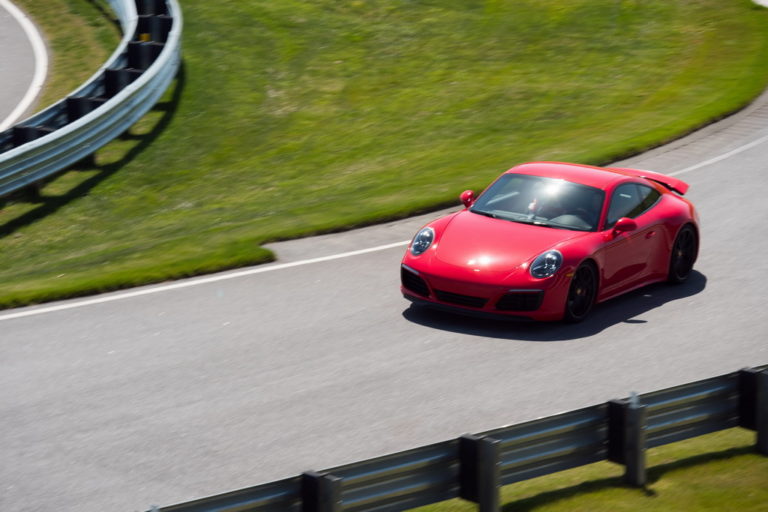In modern vehicles, electronic control units (ECUs) play a crucial role in ensuring optimal performance, efficiency, and, most importantly, safety.
For Volvo, a brand renowned for its commitment to safety and innovation, the ECUs in their cars are integral to maintaining the high standards that have become synonymous with the Volvo name. These intelligent systems work behind the scenes to monitor, control, and adjust various vehicle functions, ensuring a seamless and secure driving experience. This article explores the critical role of Volvo ECUs in maintaining both safety and performance standards across their vehicle range.
Understanding the Function of ECUs in Volvo Vehicles
Electronic control units are embedded computer systems that manage and monitor different aspects of a vehicle’s operation. In a typical Volvo, there are multiple ECUs responsible for specific functions such as engine control, braking, transmission, safety systems, and even climate control. Each ECU is essentially a brain for the system it controls, using sensors and input data to make real-time adjustments to optimize the vehicle’s behavior.
The sophistication of Volvo ECUs ensures that all these systems work in harmony, providing a smooth driving experience while maximizing safety. For instance, the engine control ECU continuously adjusts fuel injection and ignition timing to improve fuel efficiency and minimize emissions, while the safety ECUs, such as those responsible for airbags and advanced driver-assistance systems (ADAS), are critical for protecting occupants in case of an accident.
Safety Systems and Volvo ECUs
Volvo has long been a leader in automotive safety, and much of this reputation is due to the advanced safety features integrated into their vehicles. Modern Volvo cars are equipped with a variety of sensors and systems that rely heavily on ECUs to perform effectively. These systems include automatic emergency braking, lane-keeping assist, adaptive cruise control, and collision avoidance technologies.
The ECUs in Volvo vehicles are tasked with constantly monitoring the environment around the car. Using data from radar, cameras, and other sensors, these systems can detect potential hazards, such as other vehicles or pedestrians, and take appropriate action to avoid or mitigate the impact of a collision.
In the case of an impending crash, the safety ECUs work in tandem to deploy airbags, tighten seat belts, and adjust the seat position to reduce injury. Volvo’s safety ECUs can even communicate with other onboard systems to activate emergency lighting and alert emergency services in critical situations, ensuring a swift and efficient response.
Enhancing Vehicle Performance with ECUs
In addition to safety, Volvo ECUs are instrumental in enhancing the overall performance of their vehicles. From ensuring smooth acceleration to optimizing fuel consumption, these units are designed to maximize efficiency and driving pleasure.
The engine control ECU, for instance, regulates the air-to-fuel ratio to provide the best balance of power and fuel efficiency. It works alongside the transmission ECU, which manages gear shifts to ensure a responsive and smooth ride. In hybrid and electric Volvo models, the ECUs play an essential role in optimizing battery usage and integrating electric power with the traditional internal combustion engine to deliver the best possible performance.
Furthermore, Volvo’s innovative drive modes, such as Eco, Comfort, and Dynamic, rely on the coordination of multiple ECUs that adjust parameters like engine response, suspension stiffness, and steering feel. This allows the driver to tailor the vehicle’s performance to different driving conditions and preferences, improving both comfort and handling.

ECUs in Autonomous and Semi-Autonomous Systems
As Volvo continues to push the boundaries of automotive technology, the development of autonomous and semi-autonomous driving systems is at the forefront. ECUs are pivotal in this evolution, as they process vast amounts of data in real time to enable advanced driver-assistance systems (ADAS) and automated driving capabilities.
Volvo’s Pilot Assist system, for example, combines radar and camera sensors to assist with steering, acceleration, and braking in certain driving conditions. The ECUs responsible for this system must constantly process the data from the sensors, interpret the surrounding environment, and make immediate decisions to guide the vehicle safely.
As autonomous driving technology evolves, the role of ECUs will continue to expand. Future Volvo vehicles will require even more advanced ECUs to handle complex driving scenarios, such as navigating through city streets or reacting to sudden obstacles.
Impact on Fuel Efficiency and Environmental Standards
Environmental sustainability is a key focus for Volvo, and ECUs play a significant role in achieving the brand’s goal of reducing emissions and improving fuel efficiency. By managing engine parameters and controlling exhaust gas recirculation, ECUs ensure that vehicles operate within stringent environmental standards.
For example, in hybrid and electric vehicles, the ECUs optimize the balance between the electric motor and the internal combustion engine to ensure that the vehicle consumes as little fuel as possible while maximizing electric range. This fine-tuning of energy usage reduces carbon emissions and ensures that Volvo’s vehicles comply with global emission regulations.
In addition, ECUs monitor and manage various components of the drivetrain to prevent unnecessary energy wastage. This contributes to a vehicle’s overall fuel economy, helping Volvo achieve better efficiency ratings, lower running costs, and reduced environmental impact.
The Future of Volvo ECUs
As Volvo’s commitment to safety, performance, and sustainability grows, so too will the role of ECUs in their vehicles. The ongoing development of electric and autonomous vehicles will require even more advanced ECUs capable of handling greater computational loads and real-time decision-making.
In the future, Volvo vehicles may incorporate even more integrated ECUs that share data with each other to improve overall vehicle performance and safety. This could involve smarter algorithms, better communication between systems, and more precise control over every aspect of the vehicle’s operation.
Volvo’s commitment to safety, performance, and environmental sustainability relies heavily on the integration of sophisticated electronic control units throughout their vehicles – https://ecusale.com/en_GB/c/ECU-Engine-controller-VOLVO/69. These systems play an essential role in optimizing everything from fuel efficiency to advanced safety systems. As Volvo continues to innovate, the role of ECUs will become even more critical in ensuring that the brand’s vehicles remain at the cutting edge of automotive technology, delivering superior performance, safety, and sustainability for years to come.
